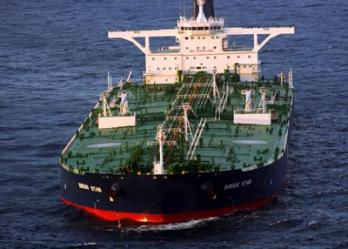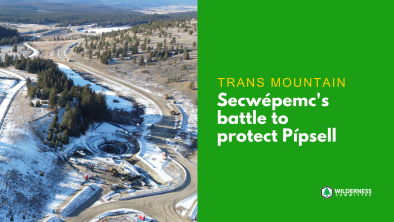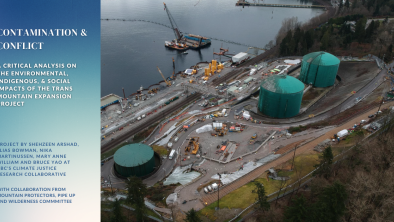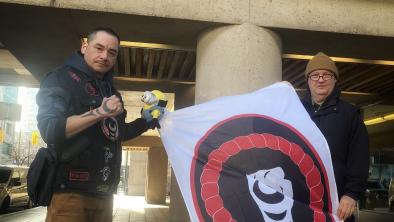Supertankers' Alberta oil shipments spur fears
Postmedia News

Bigger oil tankers, and more of them, may be headed to B.C.'s coast as companies plan to greatly expand shipments in local waters.
The plans, which include a proposal for monster Suezmax-sized tankers to pass under the Lions Gate Bridge in Vancouver, have led to fears over more risk of oil spills.
"Alberta oil may mean jobs, but we're the ones absorbing the risk," says Vancouver Coun. Andrea Reimer, who chairs the city's environment committee.
Ben West of the Wilderness Committee says Vancouver was never a major oil exporting facility until recently.
"We're operating under the assumption that companies will try to get bigger tankers into Vancouver, despite the risks of negotiating the Second Narrows," he says.
But federal officials who manage Port Metro Vancouver say the tankers meet all maritime safety standards.
Harbour master Yoss Leclerc says studies have shown oil tankers can move safely in local waters, although those studies do not include the one-million-barrel Suezmax tankers.
The largest oil tankers currently plying Vancouver waters carry 650,000 barrels.
"Vancouver harbour could accommodate two or three times the number of (approved) tankers at present," he says. "We have performed simulations, trials, conducted training and updated communications - the whole nine yards."
Pipeline giant Kinder Morgan could decide as early as next month to seek regulatory approval for a massive expansion to its Trans Mountain pipeline, which carries crude from Edmonton to the waterfront in the Vancouver suburb of Burnaby.
Company president Ian Anderson says in a prepared statement that preliminary design work is being done to double pipeline capacity from 300,000 barrels per day to 600,000.
Anderson hopes that oil could be picked up from Kinder Morgan's Burnaby wharf by Suezmax tankers.
The Alberta oil would be bound for expanding Asian markets, which reps say will lead to hundreds of billions of dollars in company profits and government tax revenues over the next 50 years.
Reimer says increased tanker traffic is very worrisome because memories are fresh of a five-million barrel spill in the Gulf of Mexico two years ago.
"There is certainly no power on local government's part to say no to increased tanker traffic," she says.
"We know oil spills happen quite often. We live in a region that highly values its waterfront. That is why people move to Vancouver and that is what is at risk," she says.
Burrard Clean, a federally mandated agency responsible for accidents, is capable of handling spills up to 75,000 barrels.
Oil tankers must pass through the Second Narrows on their way to Kinder Morgan's dock in Burnaby.
The tight passageway on the Burrard Inlet is subjected to swift tidal currents flowing down the Indian Arm, so ships move at slack tide.
"It's very shallow. If this was a street corner it would have extra lights and warnings," says West.
The Second Narrows would have to be dredged to accommodate bigger tankers and Kinder Morgan's Westridge dock facility in Burnaby expanded as well.
Leclerc says both would require an environmental review and consultation with the public before a decision was made.
Leclerc says harbour authorities would look favourably upon a proposal to upgrade to Suezmax-sized tankers if one was received.
"As a port authority, we are here to support growth for Canada. Our role is to make it safe," he says.
Kinder Morgan's preliminary designs, which were released last week, come at an inconvenient time for the industry. A spill at the company's tank storage farm in Abbotsford, B.C. riled up local residents on Jan. 24, while a fire at British Petroleum's Cherry Point refinery in Washington State Feb. 17 curtailed jet fuel deliveries to Vancouver airport and led to an increase in the price of gas at Vancouver pumps.
Environmental advocate John Vissers, who chaired a meeting between Abbotsford residents and Kinder Morgan, says a drain broke on a 50-year-old tank with a flat roof.
"The oil went in the drain and gushed out," says Vissers, who toured the facility with company reps.
A total of 110,000 litres escaped but was contained on site.
Vissers says residents want a better relationship with the company because they know the pipeline is likely to be around another 50 years.
"The Panamax tankers are three football fields long. That is a very large ship," says Richmond Mayor Malcolm Brodie, whose council is adamantly opposed to the plan.
"They pose a danger to the river foreshore. We're not satisfied with the ability of the port to contain an oil spill," he says.
Leclerc says at least three tugs in Vancouver harbour guide every Afromax-sized tanker, which carry 650,000 barrels each.
His own experiences as a ship captain in the Mediterranean back up his sense of security.
He says the Strait of Gibraltar handles more tanker traffic in a day than Vancouver does all year.
"The ship channels are very narrow," he says.


